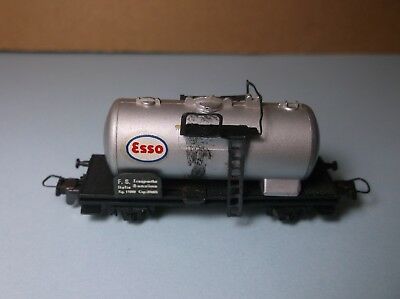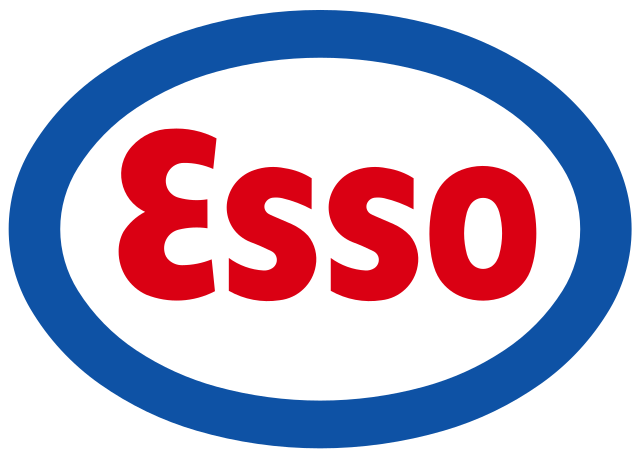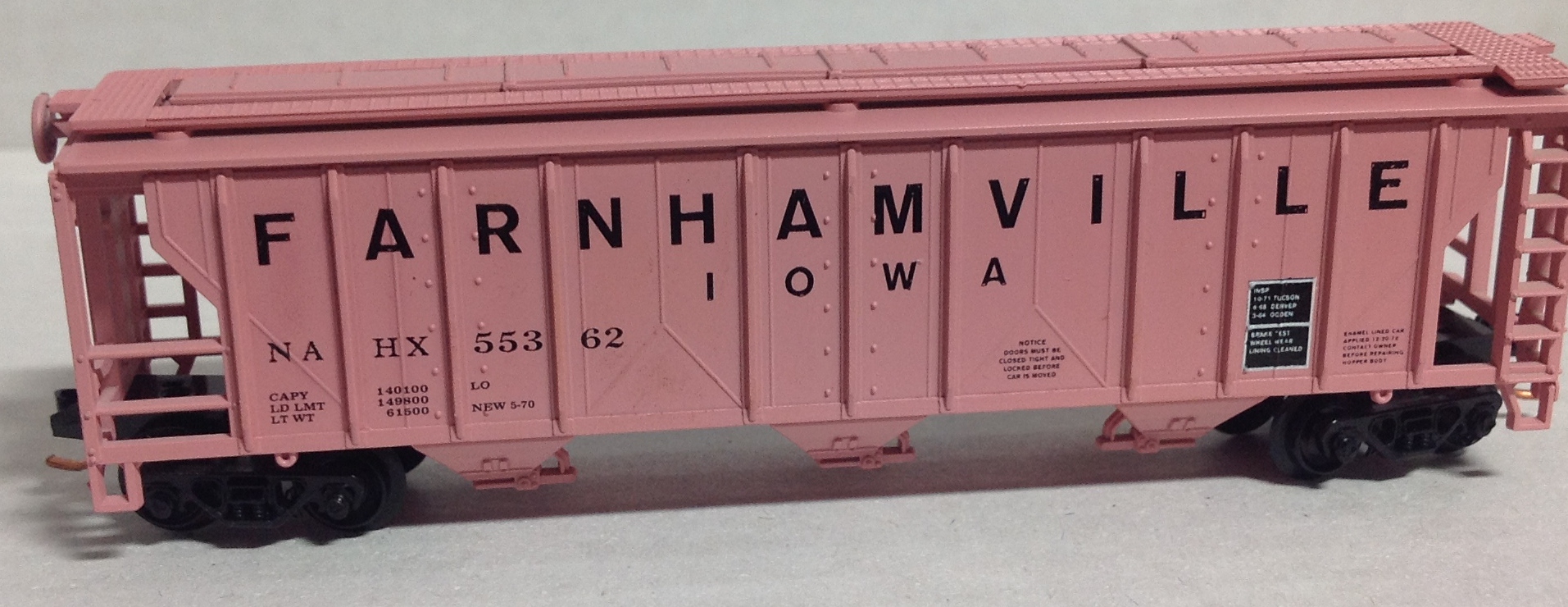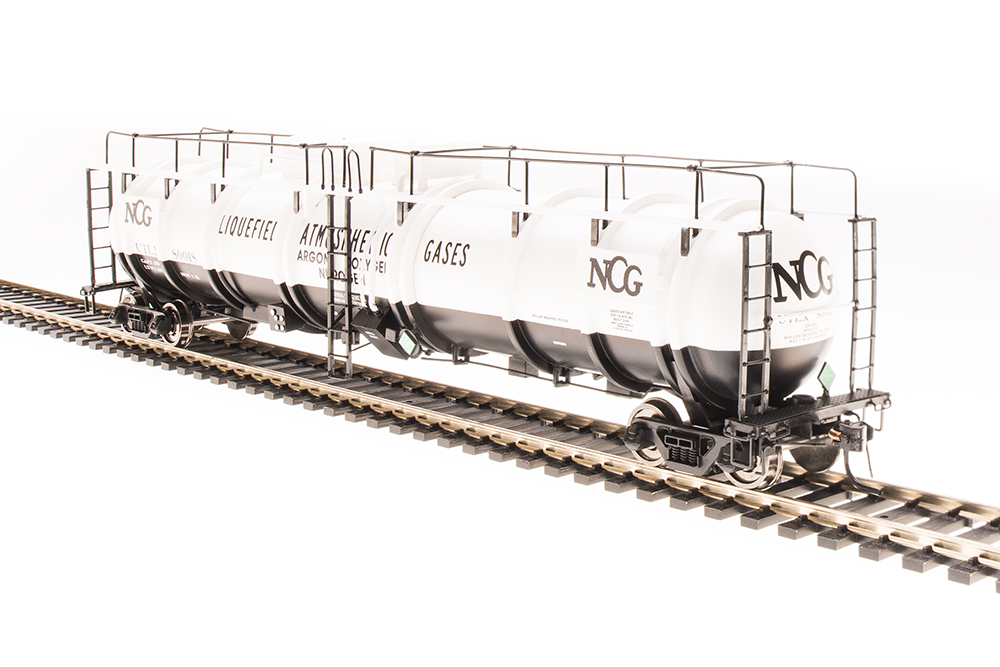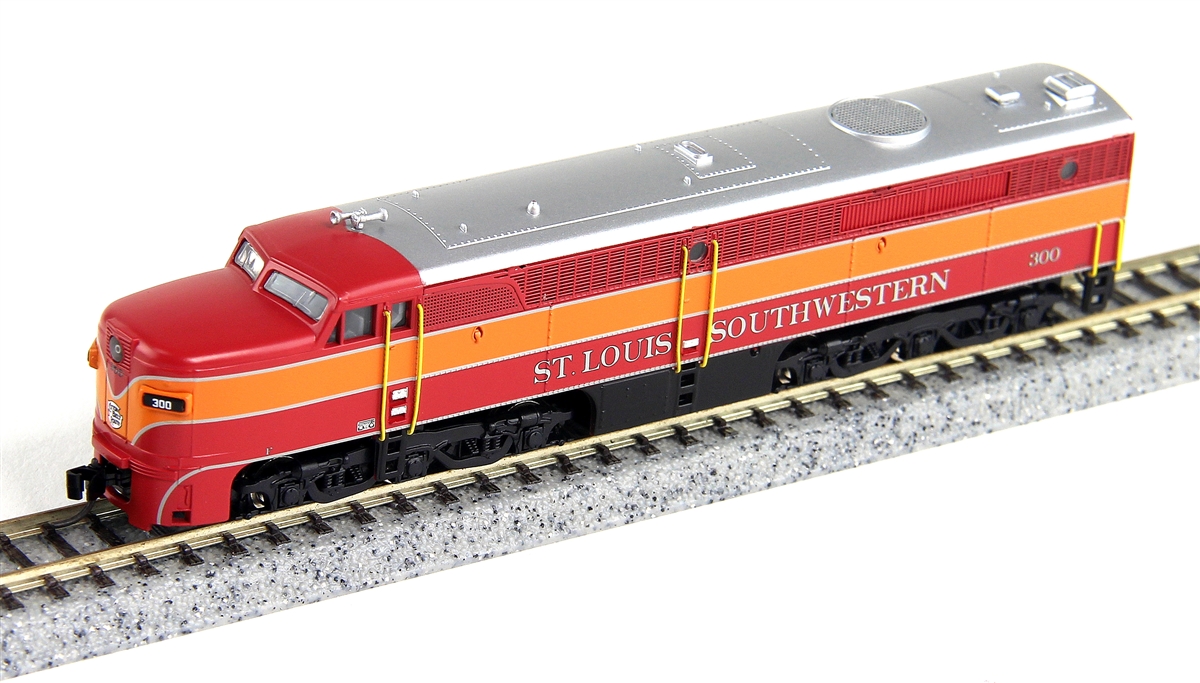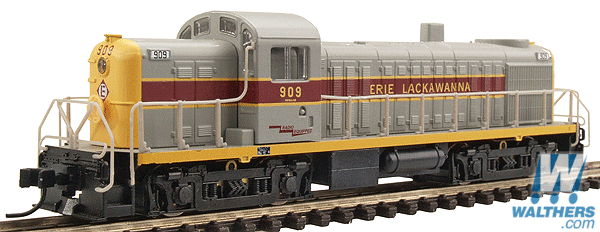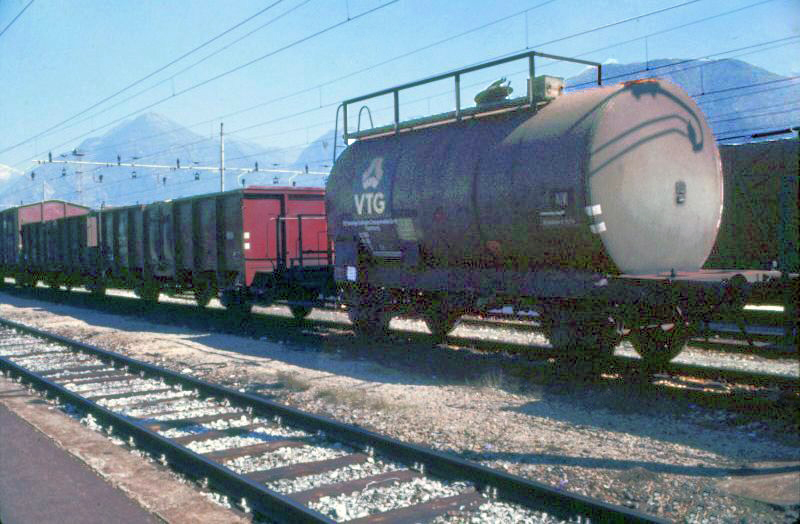Prototype History: Tank cars are a railroad staple. They have been around since the first half of the 20th century. These railcars carry a wide array of commodities, including liquid fertilizers, chemicals, fuel oils and asphalt, and food-grade oils. Tank cars can be pressurized or non-pressurized, insulated or non-insulated. Single dome cars carry only a single commodity at once. Food-service tank cars may be lined with stainless steel, glass, or plastic. Tank cars carrying dangerous goods are generally made of different types of steel, depending on the intended cargo and operating pressure. They may also be lined with rubber or coated with specialized coatings for tank protection or product purity purpose. The tank heads are also stronger to prevent ruptures during accidents.
Road Name History: Esso is a trading name for ExxonMobil. Originally, the name was primarily used by its predecessor Standard Oil of New Jersey after the breakup of the original Standard Oil company in 1911. The company adopted the name "Esso" (the phonetic pronunciation of Standard Oil's initials, 'S' and 'O'), to which the other Standard Oil companies would later object.
Standard Oil of New Jersey started marketing its products under the Esso brand in 1926. In 1972, the name Esso was largely replaced in the U.S. by the Exxon brand after the Standard Oil of New Jersey bought Humble Oil, while the Esso name remained widely used elsewhere. In most of the world, the Esso brand and the Mobil brand are the primary brand names of ExxonMobil, while the Exxon brand is used only in the United States alongside Mobil.
Standard Oil of New Jersey started marketing its products under the Esso brand in 1926. In 1972, the name Esso was largely replaced in the U.S. by the Exxon brand after the Standard Oil of New Jersey bought Humble Oil, while the Esso name remained widely used elsewhere. In most of the world, the Esso brand and the Mobil brand are the primary brand names of ExxonMobil, while the Exxon brand is used only in the United States alongside Mobil.
Brand/Importer Information: Lima N scale European models were numbered with 3 digits until 1978. They were renumbered after 1978 by adding "320" before the previous number. e.g. "306" became "320306".
Manufacturer Information:  Lima S.p.A (Lima Models) was a brand of railway models made in Vicenza, Italy, for almost 50 years, from the early 1950s until the company ceased trading in 2004. Lima was a popular, affordable brand of 00 gauge and N gauge model railway material in the UK, more detailed H0 and N gauge models in France, Germany, Italy, Switzerland, and the United States as well as South Africa, Scandinavia and Australia. Lima also produced a small range of 0 gauge models. Lima partnered with various distributors and manufacturers, selling under brands such as A.H.M., Model Power, Minitrain and PMI (Precision Models of Italy). Market pressures from superior Far Eastern produce in the mid-1990s led to Lima merging with Rivarossi, Arnold, and Jouef. Ultimately, these consolidations failed and operations ceased in 2004.
Lima S.p.A (Lima Models) was a brand of railway models made in Vicenza, Italy, for almost 50 years, from the early 1950s until the company ceased trading in 2004. Lima was a popular, affordable brand of 00 gauge and N gauge model railway material in the UK, more detailed H0 and N gauge models in France, Germany, Italy, Switzerland, and the United States as well as South Africa, Scandinavia and Australia. Lima also produced a small range of 0 gauge models. Lima partnered with various distributors and manufacturers, selling under brands such as A.H.M., Model Power, Minitrain and PMI (Precision Models of Italy). Market pressures from superior Far Eastern produce in the mid-1990s led to Lima merging with Rivarossi, Arnold, and Jouef. Ultimately, these consolidations failed and operations ceased in 2004.
Hornby Railways offered €8 million to acquire Lima's assets (including tooling, inventory, and the various brand names) in March of the same year, the Italian bankruptcy court of Brescia (town near Milan, last headquarters of Lima) approving the offer later that year. In December 2004, Hornby Railways formally announced the acquisition along with the Rivarossi (H0 North American and Italian prototypes), Arnold (N scale European prototypes), Jouef (H0 scale French prototypes), and Pocher (die-cast metal automobile kits) ranges. As of mid-2006, a range of these products has been made available under the Hornby International brand, refitted with NEM couplings and sprung buffers and sockets for DCC (Digital Command Control) decoders.
From Wikipedia

Hornby Railways offered €8 million to acquire Lima's assets (including tooling, inventory, and the various brand names) in March of the same year, the Italian bankruptcy court of Brescia (town near Milan, last headquarters of Lima) approving the offer later that year. In December 2004, Hornby Railways formally announced the acquisition along with the Rivarossi (H0 North American and Italian prototypes), Arnold (N scale European prototypes), Jouef (H0 scale French prototypes), and Pocher (die-cast metal automobile kits) ranges. As of mid-2006, a range of these products has been made available under the Hornby International brand, refitted with NEM couplings and sprung buffers and sockets for DCC (Digital Command Control) decoders.
From Wikipedia
Item created by: Mopjunkie on 2019-07-06 22:46:16. Last edited by CNW400 on 2020-05-19 14:30:44
If you see errors or missing data in this entry, please feel free to log in and edit it. Anyone with a Gmail account can log in instantly.
If you see errors or missing data in this entry, please feel free to log in and edit it. Anyone with a Gmail account can log in instantly.


